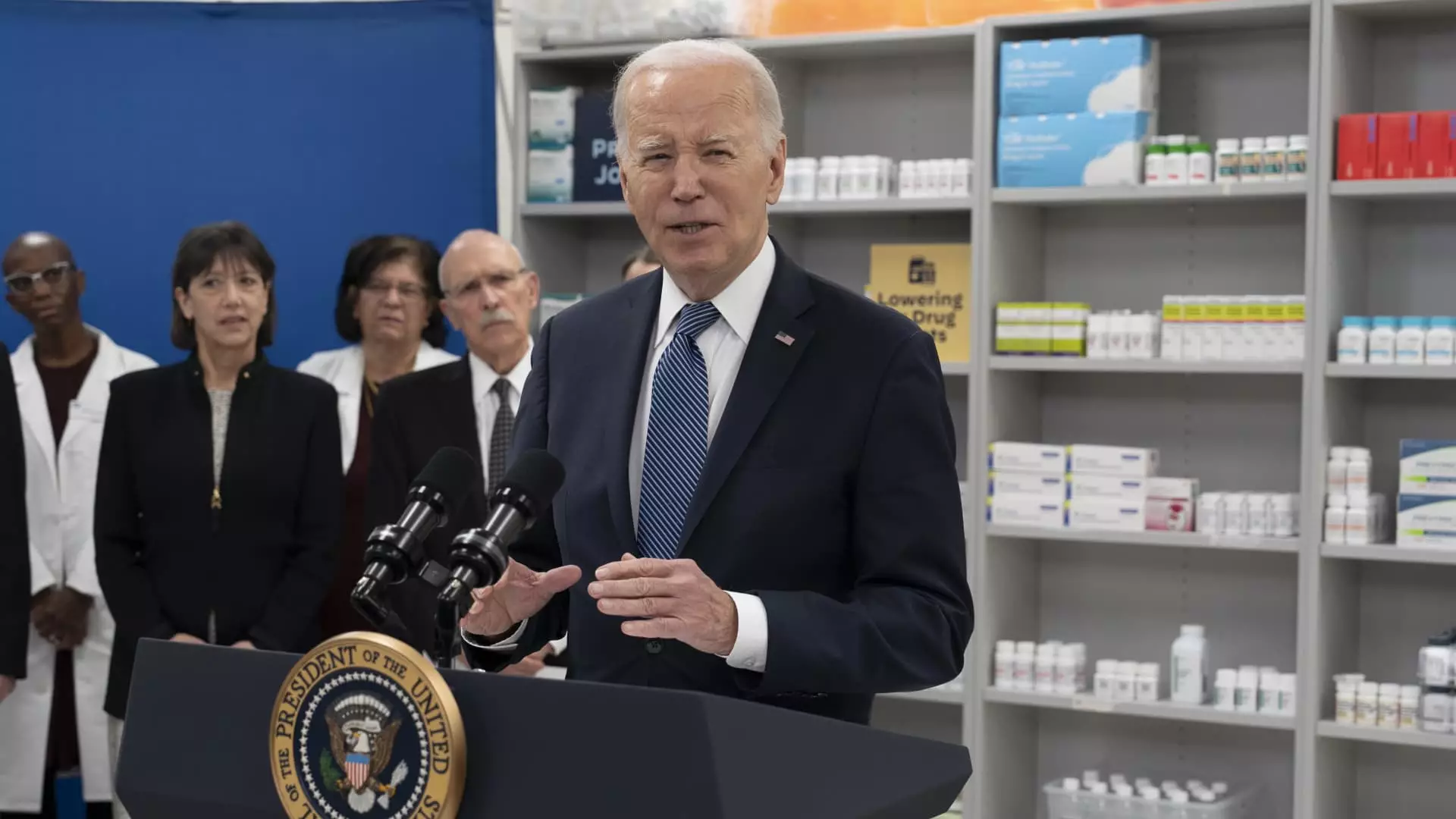The Biden administration recently announced that it will be imposing inflation penalties on 64 prescription drugs for the third quarter of this year. This move is aimed at lowering costs for certain older Americans enrolled in Medicare, as part of President Joe Biden’s efforts to make healthcare more affordable.
President Biden has been vocal about his commitment to lowering drug prices in the United States, viewing it as a key pillar of his health-care agenda and a vital component of his reelection platform for 2024. One of the provisions of Biden’s Inflation Reduction Act mandates that drugmakers pay rebates to Medicare if they raise the price of a medication faster than the rate of inflation.
The impact of this decision is significant for Medicare Part B patients who may now pay a lower coinsurance rate for the 64 drugs covered under the announcement. This reduction in costs can potentially save patients thousands of dollars per day, particularly for medications used to treat conditions such as cancer, infections, and osteoporosis.
Several well-known medications are included in the list of drugs facing inflation penalties, including Bristol Myers Squibb’s Abecma, Pfizer’s Adectris, and Astellas Pharma and Pfizer’s Padcev. The Biden administration highlighted that the price of Padcev has consistently increased faster than inflation since the implementation of the Medicare inflation rebate program.
Neera Tanden, White House domestic policy advisor, emphasized the importance of the Inflation Reduction Act in protecting seniors from Big Pharma’s price hikes. She stated that without this legislation, seniors were vulnerable to uncontrolled increases in drug prices. The administration’s decision to hold drugmakers accountable for inflationary pricing practices aims to provide relief to Medicare patients.
The Centers for Medicare & Medicaid Services are set to begin sending invoices to drugmakers in 2025 for the rebates owed to the program. This initiative reflects the government’s ongoing commitment to tackling rising drug costs and ensuring greater affordability for patients. In December, Biden previously listed 48 prescription drugs subject to inflation penalties, indicating a sustained effort to address pricing issues.
The Biden administration’s imposition of inflation penalties on prescription drugs represents a step towards making healthcare more accessible and affordable for older Americans. By holding drugmakers accountable for their pricing practices, the government aims to ensure that patients can access vital medications without facing exorbitant costs.


Leave a Reply